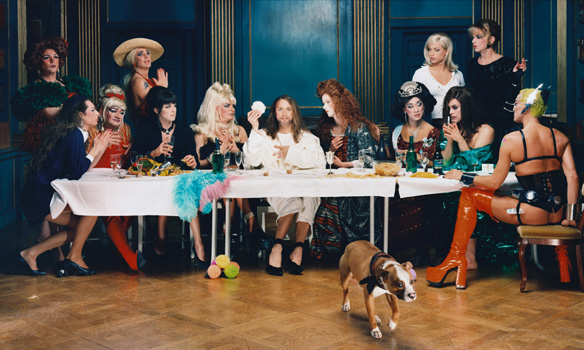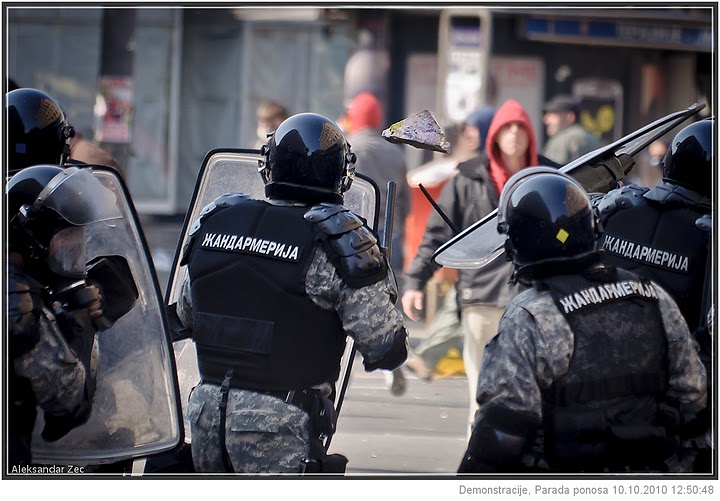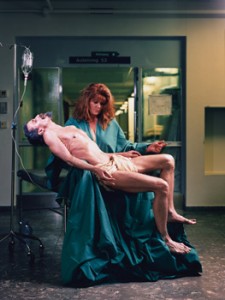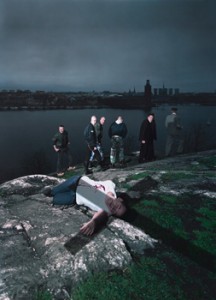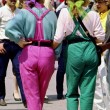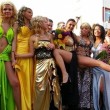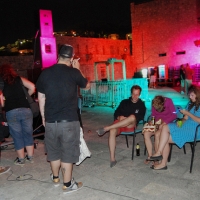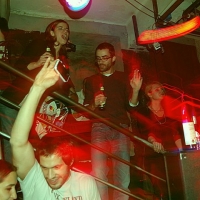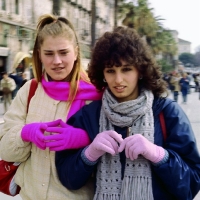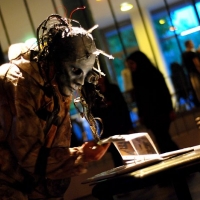Belgrade Pride has been banned once again. After a lesbian flash mob wedding in the city centre, a controversial art exhibition on sex, politics and religion is on its way. God-fearing ultranationalists are ready to strike and the government is a bit security-shy as expected
In the last several years, the gay issue has become one of the most important topics in Serbian daily politics, a battlefield of liberal vs conservative ideologies and pretty much everything else in between. Never mind the staggering unemployment rates, it seems that Serbs have far more essential things on their agenda, reaching the very core of our human existence.
Apparently, the militant ultranationalists are quite keen on it, thinking about gays more than Andy Warhol used to think about Mick Jagger’s dick. With excessive free time on their hands, a surplus of mates and a casual lack of girlfriends, these organised male groups briefly enter the Serbian political focus every time a foreign embassy needs to be trashed or a few heads smashed along the way. Their relationship with this and previous Serbian governments has never been fully investigated, but some say it is tight as a tight asshole can be.
For the third time in a row, the government bans the Belgrade Pride parade citing “security risks”, but the explanation might not be as straightforward as it seems. As Security Studies lecturer from the University of Belgrade, Filip Ejdus points out, there is a distinction between “security risk” and “security threat” which is not purely semantic. Whereas a security risk corresponds to a potential future damage which can be predicted but rarely prevented, as in the case of natural disasters, a security threat by default requires an adequate counter-action by the state. So why does the Serbian government respond to security threats from violent gangs as if they were a case of upcoming bad weather? “Sorry. We got some gusty winds on the way. There’s nothing we can do about it.”
Despite “security risks”, the Belgrade Pride organisers have already kicked off a week of events, starting with a flash mob lesbian wedding between Vera (Faith) and Nada (Hope) in the centre of Belgrade. The performance is followed-up with a mini-series of screenings and art exhibitions depicting the relationship between body and politics, sexuality and religion, headlined by the controversial Swedish artist Elisabeth Ohlson Wallin whose campish homoerotic re-enactments of famous Biblical scenes such as the Last Supper, Baptism of Christ and many others have already shocked the world of hardcore Christians about a decade earlier.
Some argue this might not be the right approach to tackle the Serbian gay issue since it only further irritates the militant homophobes. Others say you sometimes need to fight back. As the British actor Stephen Fry mentioned in his message of support for the Belgrade Pride, quoting Edward Burke, “‘for evil to flourish all that is required is for good men to do nothing'”.
So what should ‘good men’ do this time? As far as Ohlson Wallin’s exhibition goes, despite the fact the Patriarch of the Serbian Church cried for government’s intervention on accounts of blasphemy, you shouldn’t expect much from the state. Compared to Putin’s Russia, Serbia is a relatively liberal country. Actually, it’s so liberal it can tolerate systematic violence against its own citizens. The Belgrade thugs have already announced their presence at today’s opening in CZKD. They know little about Jesus or the Bible, but they know a few things about springing into action. It’s a tough world. That’s why we should all give them lots of love this entire week and perhaps help them find girlfriends. Or boyfriends. Because love, love, love is in the air…

